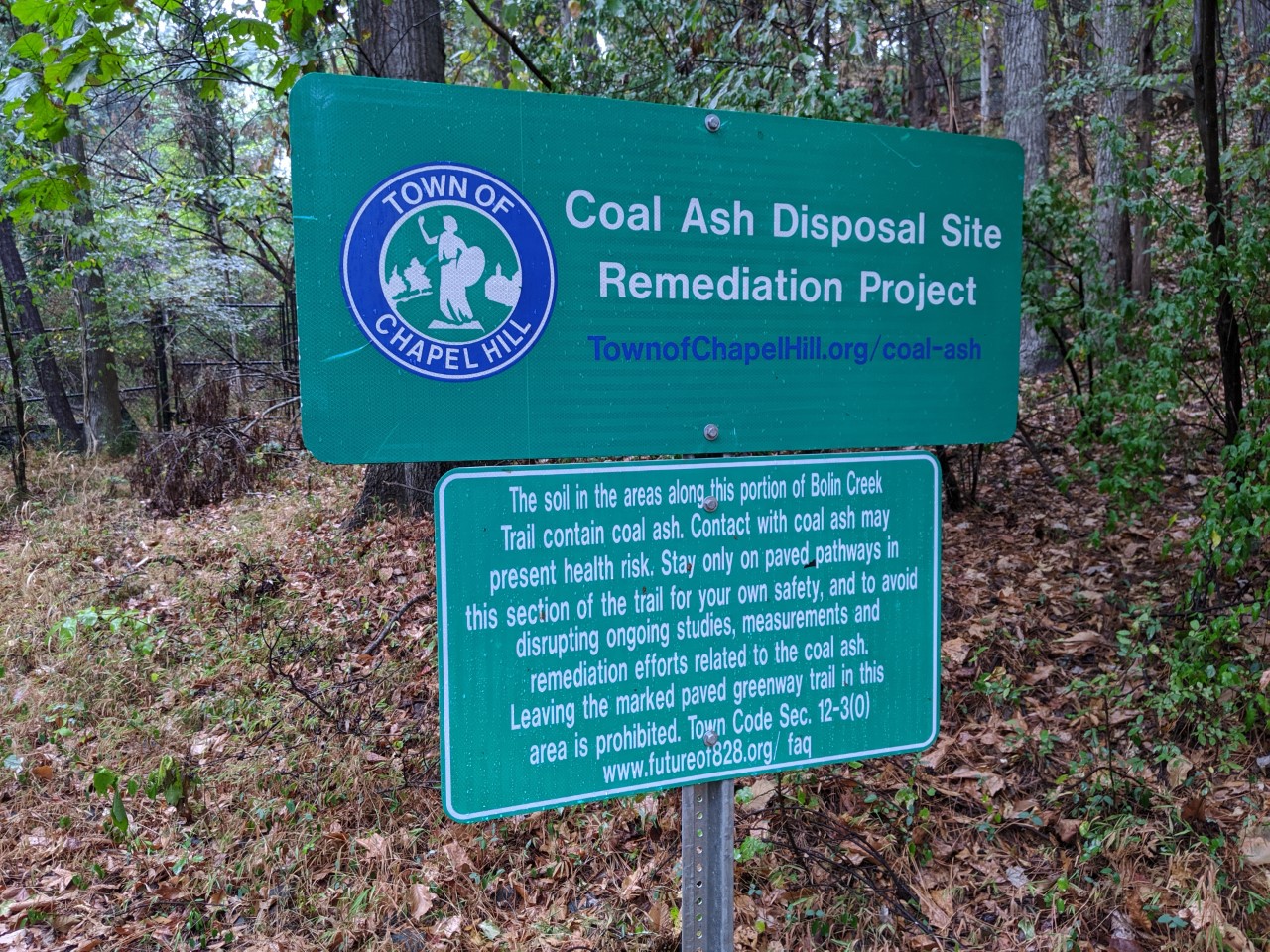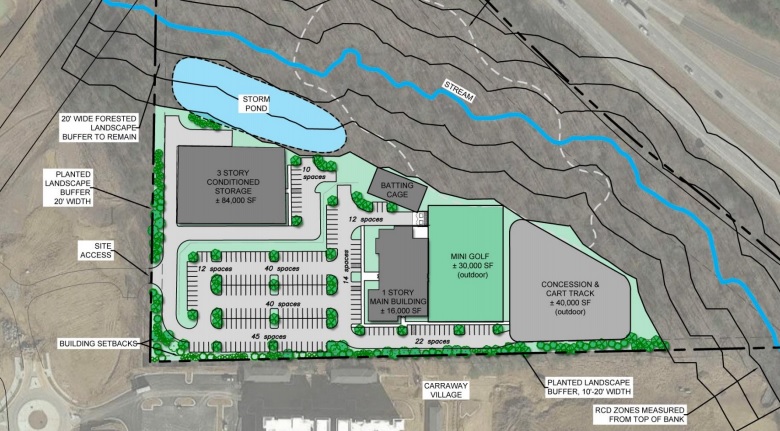The Town of Chapel Hill has identified the need to rebuild and expand its police station for years — but the process was quickly derailed by the discovery of thousands of pounds of coal ash beneath the station at 828 Martin Luther King Jr. Boulevard. Since then, the town has sought a new location, but not found a suitable replacement – meaning the main option is remediating the coal ash and developing at the current site.
During its meeting on Wednesday night, the Chapel Hill Town Council voted 7-1 in favor of making a new concept plan for a future Municipal Services Center. The move helps restart the process of submitting a potential design plan to the state’s Department of Environmental Quality for review and recommendations regarding the coal ash on the property.
Plans for redevelopment of the police station, which town staff say is in disrepair and is too small for its force, have been discussed since 2008. The local government hopes with this new center to include space for an EMS team and space for the offices of several other town departments.
Chapel Hill’s elected officials held similar discussions for the property just last year. The group passed a non-binding agreement to have concept plans made for the center – but that iteration also included several hundred apartments for the site. Those plans were ultimately scrapped in September, as then-Town Manager Maurice Jones told the council rising construction costs made it more feasible to focus on building the Municipal Services Center first.
Interim Town Manager Chris Blue and Deputy Manager Mary Jane Nirdlinger agreed with this recommendation on Wednesday night, saying town staff have shifted focus away from residential options at 828 MLK Boulevard. Nirdlinger said any future plans for housing would have to be submitted and approved by the state government – like this round of concept planning will.
Blue also said because of the coal ash’s presence, it is critical for the town council to move forward in some form with redevelopment – not only to address any risks of exposure, but also to address the town’s need for space. To do that, he said, Chapel Hill must hear what the state Department of Environmental Quality suggests for the site.
“It’s our recommendation,” said Blue, “that we let the experts who work in this field every day and who are trusted by the state with doing the professional evaluation and calculation of next steps guide our next steps.
“One thing we all agree on is that [redevelopment] must be done,” added the town manager. “And I submit to you that we must get started now.”
The 828 MLK Boulevard property has been enrolled in North Carolina’s Brownfields program since 2019, but the town has not yet gotten back the most recent results from the DEQ’s testing. The state government held information sessions with community members last May to discuss the program and steps to be taken at the police station’s site. The options are “capping” the ash – which is building an underground concrete cell to contain the hazardous materials – or moving it elsewhere.
During Wednesday’s public comment period, some community members criticized the potential of any redevelopment while the coal ash remains. Groups of environmental advocates and concerned residents have held their own meetings and information sessions over the last year to discuss potential effects of building on top of coal ash. Additionally, Chapel Hill’s Environmental Steward Advisory Board unanimously submitted a petition advocating for full removal before building.

A sign for the coal ash remediation project posted near Bolin Creek Trail in Chapel Hill. The town government has taken some remediation steps to keep the ash away from the trail nearby 828 MLK Boulevard — but now it’s seeking a plan for how to best address the ash underneath the police station.
It’s this reason that Council Member Adam Searing says he voted against the resolution for any plan of new construction at the site. Searing cited UNC’s removal of coal ash during a university construction project in 2010 as an example of how Chapel Hill “should do no less” for its employees.
“We need to just remove this ash,” he said. “And I’m really happy to support building town offices, housing, or any other public amenity on our site. However, we really have a responsibility to our community, our taxpayers, and, most importantly, our employees, to remove this hazardous coal ash completely before we do so.”
Council Member Jessica Anderson, however, said the town council has received advice so far to instead cap the ash. She pointed to hiring consultants beyond the Brownfields program to supplement advice to town staff and elected officials on science and safety. Anderson also said she wants to explore those remediation options before creating more “ethical problems” by moving the toxic materials.
“Trucking our coal ash to another community is not the only answer that we have,” said Anderson. “In fact, I would actually disagree with that completely. I trust us to test this site going forward more than I do a poorer community with fewer resources and then other people are going to be exposed. Just because it’s not Chapel Hill doesn’t mean the coal ash won’t be somewhere – there is no coal ash-free future.”
Anderson also said she believes making a concept plan could help break the ongoing cycle of running assessments but lacking a true proposal to address the coal ash – which she likened to being on “a hamster wheel going around and around.”
Like Anderson, Council Member Michael Parker voted in favor of having a concept plan crafted for the 828 MLK Boulevard property. During his comment period, he said the town council, staff, and community members are aligned on the most challenging part of this project: it must be safe.
“In the end,” said Parker, “the goal is the same for everybody at this dais – as well as everybody out there who is clearly very concerned and has every right to be. When we are done, there will be no exposure to anyone, anywhere near that site – that’s our goal, that’s what we’re striving for. And we’re going to work with the best science we can get to achieve that goal.”
The town council’s 7-1 vote also approved a resolution detailing a spending and borrowing plan for the estimated $45 million cost of constructing the Municipal Services Center. Council Member Tai Huynh was absent from the meeting and did not vote.
Chapelboro.com does not charge subscription fees, and you can directly support our efforts in local journalism here. Want more of what you see on Chapelboro? Let us bring free local news and community information to you by signing up for our biweekly newsletter.









